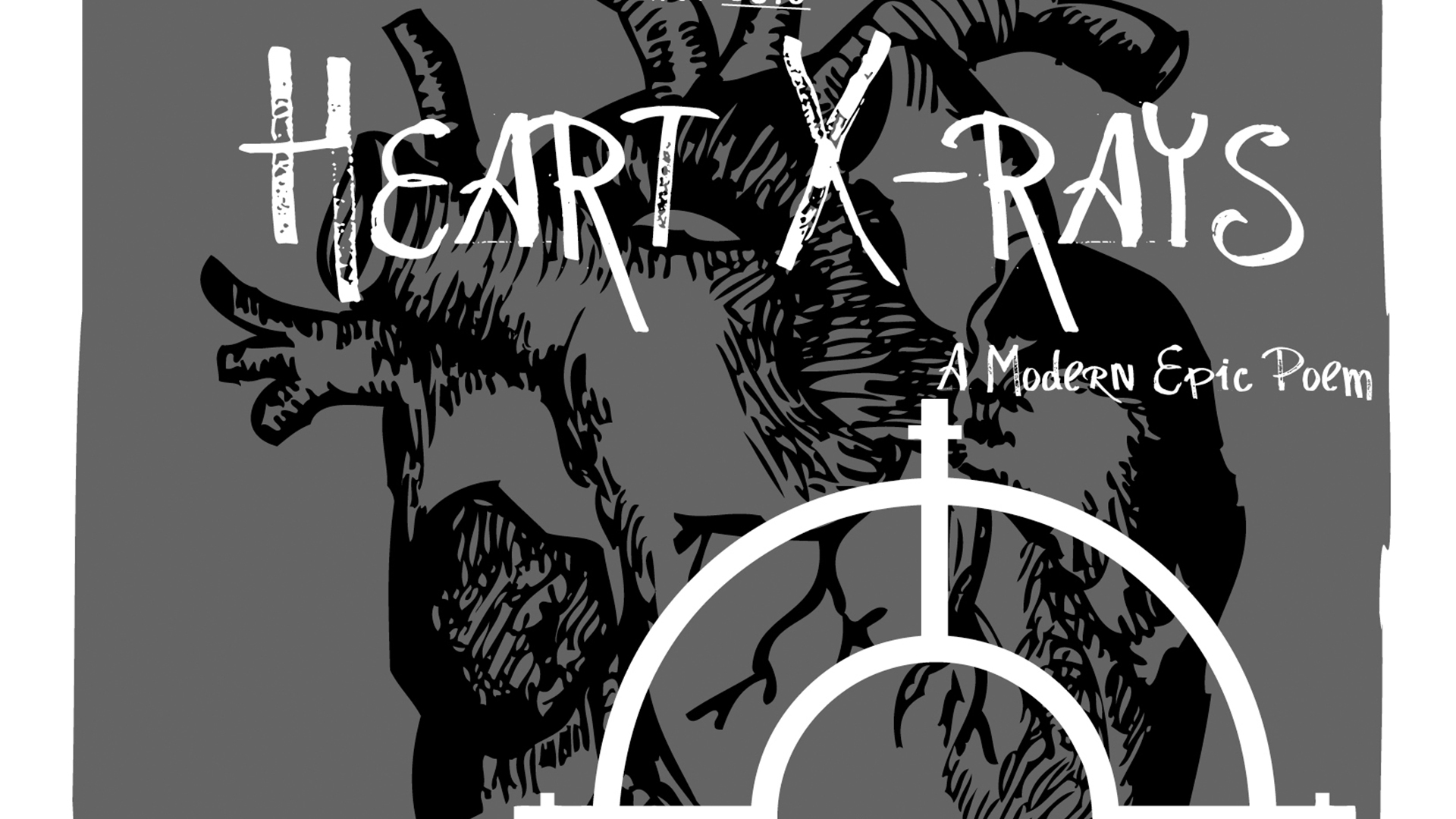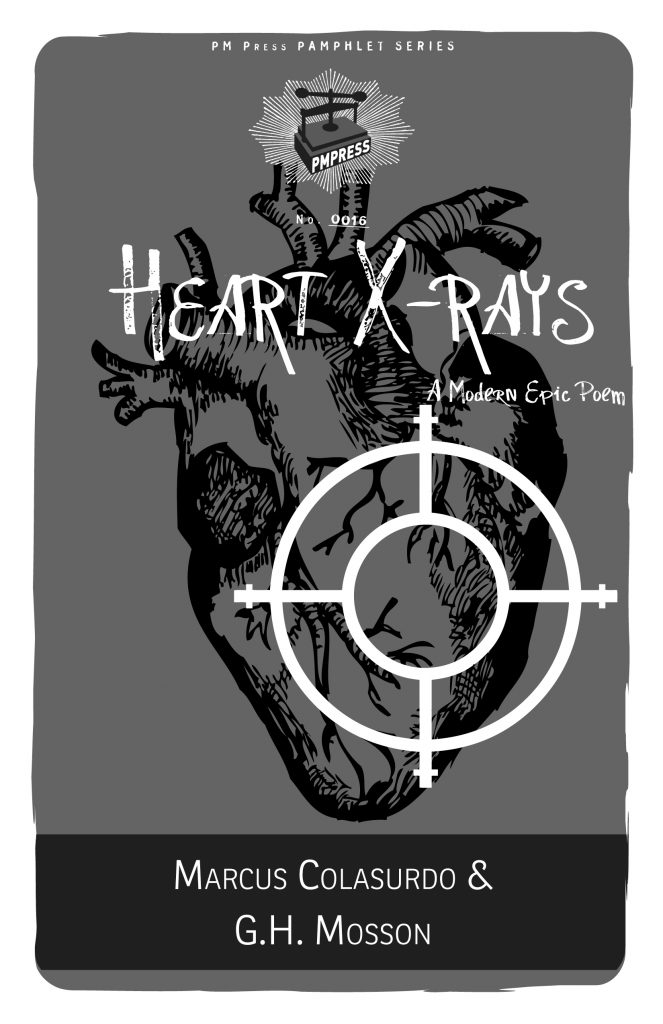By James Bourey
Broadkill Review
July 1st, 2019
At
my first reading of Heart X-rays, I was inclined to question its claim
to “Epic” status and, in fact, to question if there is enough connection
between its various passages to follow a story which is the usual mark
of the ancient epics such as The Iliad or Beowulf. Even many of the more
modern epics – Stephen Vincent Benet’s John Brown’s Body, J. R. R.
Tolkien’s The Fall of Arthur, or G. K. Chesterton’s The Ballad of White
Horse – depended on a clear narrative line, a presentation of history or
myth with heroic characters facing great challenges. But then I
considered other less conventional modern epics – Hart Crane’s The
Bridge, Pound’s Cantos, and William Carlos Williams Patterson – and
decided to take a closer look at Heart X-rays. And if we think of the
division of modern epics into separate poems, cantos or numbered
sections then this small book edges closer to fulfilling its title.
Now
I’m not going to claim that this poem is on the same level as the
classics but it does have a lot to offer in terms of commentary on our
modern, narcissistic, media-driven way of life, though this is not an
obviously political treatise. It is also a story of one person’s attempt
to make a positive change in the world through the creation of places
for hungry people to find nourishment. And the collaborative aspects of
the book are often visible in the similar but distinct voices making
observations on urban life, homelessness, shocked communities reeling
after the commission of blatant hate crimes, and hunger.
And there is some fine poetry in these pages.
Who wedged the universe into an alphabet
within a computer screen? Scroll through
all the way. My homeless heart cannot fit
into any safe deposit box. I just left town.
And
Behind your tears,
The past, behind your
Past, this dirty web,
Behind each thread, ants
And spaceships, dinosaurs and
Hurricanes, a baby’s smile.
The
above two passages are from the same section (both on page four) which
begins with the line on page two – “Dreams of underwear cannot hide my
nakedness.” Then the section moves into a short-lined, rhythmic and
rhyming twenty-eight lines followed immediately by dense stanzas which
would work well in a stream-of-consciousness spoken-word riff. And then,
just a little further on, we come to an italicized one-and-a-half pages
of what truly is a spoken-word piece which includes directions to the
audience – “Put yr hands up & say HEYYY!” and Just “holla!”.
The
sheer number of changes in these pages presents a challenge. A section
called “Street Scene” is lyrical with lines like “there is no way to/
warn you; while you/ are walking rectangled/ into hypnosis”. A page
later we are faced with “Charleston – after the shooting June ” which
sets a terrible event squarely into the history of the city.”Can it be
that the mouth of your port,/ Charleston, still tingles with the taste
of/ flesh in chains? I hear the coded talk-/ talk…” a moving and
pointedly direct line to the present and past.
We move on, being
jarred and cajoled, glimpsing humanity in its everyday beauty and all
too frequent despair, and finding inspiration as well. The “Soul
Kitchen” section is a chronicle and celebration of the founding and
success of two locations of free meal service to hungry folks in
Baltimore, MD, and Hazelton, PA, sponsored largely by Mr. Colasurdo. It
should be noted that both authors have a long record of service to
progressive and charitable causes.
So, in a very real sense,
this is a “modern epic poem”. It has a big story to tell. It is grounded
in poetic tradition, yet it stretches the boundaries of that tradition.
It is pleasing to the ear. It is strong in its moral message. It is
also entertaining in its fresh approach to language and narrative flow.
It is well worth reading and I recommend it.
Jim Bourey is an old poet who divides his time between the northern Adirondack Mountains and Dover, DE. His chapbook Silence, Interrupted was published in 2015 by the Broadkill River Press and won first place for poetry chapbook in the Delaware Press Association writing competition. His work has appeared in Mojave River Review, Stillwater Review, Blue Nib, Paddock Review, Broadkill Review and other journals and anthologies. He is also a regular contributor of book reviews for The Broadkill Review. He has been an adjudicator for Delaware Poetry Out Loud and can often be found reading aloud in dark rooms.
Back to G.H. Mosson’s Author Page | Back to Marcus Colasurdo’s Author Page







